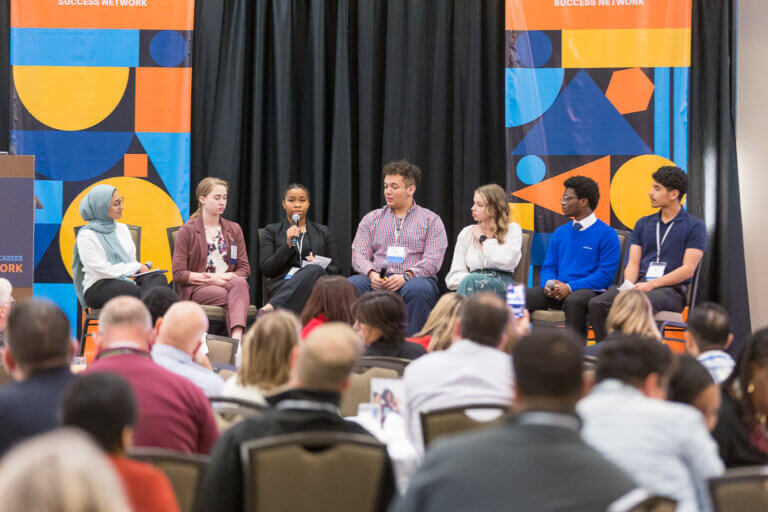Employers and educators often encounter a disconnect between what is taught in the classroom and what employers feel is needed to be successful in the workplace, which creates frustrating challenges that ultimately have an impact on course planning, decision-making for life after high school, and hiring choices.
In July 2016, Illinois took a bold step to address this challenge when it enacted the Postsecondary and Workforce Readiness Act (PWR Act), which identified and addressed four truly ambitious components to improve the alignment and transition from high school to—and through—college and into careers. One of those components is the College and Career Pathway Endorsement.
Over the past year, EdSystems, in partnership with JFF, a non-profit partner focused on driving change in the American workforce and education system, has spearheaded the effort of bringing together leaders from state agencies, K–12, higher education, and businesses from around the state to look at employer needs and then collectively define the skills—or competencies—that students need for success in both college and career, which is a crucial part of the development and implementation of the endorsements.
Competencies, or the statements that indicate what students need to know and be able to do, can help to form a coherent common framework that bridges the structural differences between educational institutions and employers. Endorsements, because they are formed around competencies, can define and strengthen overlapping interests between employers and educators, and provide a truly valuable way for school districts to validate the hard work that a student has done to prepare for college and career in a specific industry sector and indicates that this student is ready for both college and career.
We have worked closely with JFF to spearhead a collaborative and iterative 5-step process to define the high-level competencies in four of the state’s seven College and Career Pathway Endorsement areas by forming four state-wide, public-private steering committees in health sciences and technology, information technology, manufacturing and engineering, and finance and business services.
These committees worked with us to define both core professional competency skills that are essential to all careers and specific technical competencies that are helpful for planning in those industry sectors.
In consultation with state agencies and industry experts-including human resource professionals, education and training professionals, and industry associations, Illinois recently released a report detailing College and Career Pathway Endorsement competencies that the steering committees have already developed in the four industry areas listed above.
Why are these competencies so important?
- They clearly describe both what a student needs to know and be able to do across a targeted industry sector, which improves the ability for schools to plan their courses.
- They act as a useful structure for helping to span and seamlessly connect learning across high-school and college spaces, because they provide content for designing pathways that span grades 9–12, with the hope of extending this into higher education.
- They provide a common language for employers and educators-creating a shared understanding of the seven PWR endorsement areas and what they signify in the workplace.
- They also are designed for broad applicability. Endorsements are earned through demonstrating competencies in both classroom and work-place settings during work-based learning experiences.
JFF and EdSystems are now undergoing the same process to map high-level competencies in the remaining three College and Career Pathway Endorsement areas:
- Agriculture, food, and natural resources
- Arts and communication
- Education, as part of human and public services
We are confident that putting competencies at the center of the conversation between employers and education can help to address some of the real challenges that impact the ability for young people to be successful when they transition to the workplace and that the process Illinois is engaging in will act as a valuable template for others who are seeking to do this work elsewhere.
The competency-mapping process has been led by a partnership between EdSystems and JFF, thanks to generous support from JP Morgan Chase & Co.


